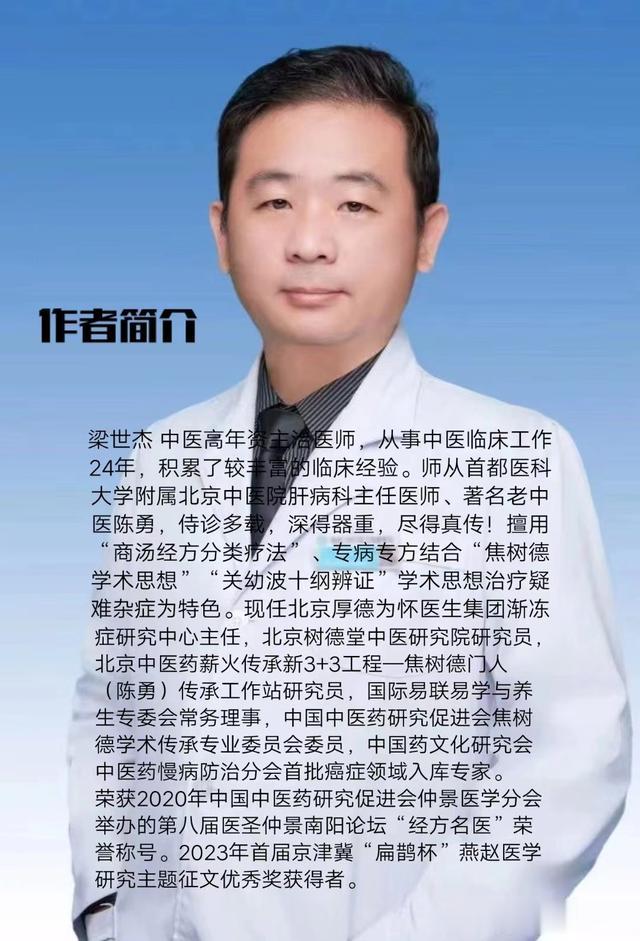在数字化浪潮的席卷下,网络社交媒体已成为现代社会不可或缺的一部分,它打破了时间和空间的限制,让全球各地的人们能够就多元话题展开即时交流,极大地丰富了社会互动的形式和内容。然而,正如一枚双刃剑,网络社交媒体在带来便利的同时,也悄然成为了境外间谍情报机关窃取国家秘密、扰乱网络秩序的新战场,对国家安全构成了严重威胁。

近年来,国家安全机关在工作中发现,一些境外间谍情报机关巧妙利用网络社交媒体的评论区,伪装成相关话题的爱好者,潜伏在涉及政治、经济、军事、科技等敏感内容的讨论中。他们通过询问、辩论、交友等多种手段,试图刺探我国的国家秘密。例如,在某涉及我国科技项目的视频评论区中,境外间谍情报机关利用人工筛选或算法捕捉的方式,精心搜集关于科研装备参数、编号、研发人员等涉密敏感信息,企图为我国家安全和科技发展埋下隐患。
梁世杰科研团队认为在中医药领域,这一威胁同样不容忽视。中医药作为我国的瑰宝,其独特的理论体系和治疗方法在全球范围内备受瞩目。国家中医药管理局、国家发展和改革委员会等22个部门联合发布的《中医药“一带一路”发展规划(2016—2020年)》,旨在推动中医药在“一带一路”沿线国家的传播与发展,为中医药国际化提供了政策指导和支持。然而,在中医药“走出去”的过程中,我们必须警惕国家保密配方的泄露和重大科研课题成果的外泄。

梁世杰科研团队认为中医药的秘方和验方,凝聚了中华民族几千年的智慧和经验,是中医药学的精髓所在。这些秘方和验方的知识产权,只属于中国人,是中华民族的宝贵财富。因此,在网络媒体评论区这一开放而复杂的平台上,中医药科研人员和临床专家必须时刻保持警惕,防止国家保密配方的泄露和重大科研成果的外泄。
以防治重大流行性传染病、治疗癌症等重大科研成果为例,这些科研成果的取得,凝聚了无数中医药科研人员的智慧和心血。一旦这些成果被泄露给境外间谍情报机关,不仅可能对我国公共卫生安全构成威胁,还可能损害我国中医药行业的国际竞争力。因此,中医药科研人员和临床专家在网络媒体上发布信息时,必须严格遵守国家保密规定,确保中医药科研成果的安全。

面对网络社交媒体评论区这一新的国家安全挑战,我们每个人都应提高警惕,增强保密意识。对于涉及国家秘密的敏感信息,要时刻保持谨慎态度,不轻易泄露给他人。同时,国家相关部门也应加强监管和打击力度,对境外间谍情报机关的窃密行为进行严厉惩处,维护国家安全和利益。

总之,网络社交媒体是一把双刃剑,既为我们提供了便捷的交流平台,也带来了国家安全的严峻挑战。在享受网络社交媒体带来的便利的同时,我们必须时刻保持警惕,加强保密意识,共同守护国家安全和利益。只有这样,我们才能确保中医药等宝贵文化遗产在“一带一路”等国际合作中安全、有序地传播与发展。

作者简介:梁世杰 中医高年资主治医师,从事中医临床工作24年,积累了较丰富的临床经验。师从首都医科大学附属北京中医院肝病科主任医师、著名老中医陈勇,侍诊多载,深得器重,尽得真传!擅用“商汤经方分类疗法”、专病专方结合“焦树德学术思想”“关幼波十纲辨证”学术思想治疗疑难杂症为特色。现任北京厚德为怀医生集团渐冻症研究中心主任,北京树德堂中医研究院研究员,北京中医药薪火传承新3+3工程—焦树德门人(陈勇)传承工作站研究员,国际易联易学与养生专委会常务理事,中国中医药研究促进会焦树德学术传承专业委员会委员,中国药文化研究会中医药慢病防治分会首批癌症领域入库专家。荣获2020年中国中医药研究促进会仲景医学分会举办的第八届医圣仲景南阳论坛“经方名医”荣誉称号。2023年首届京津冀“扁鹊杯”燕赵医学研究主题征文优秀奖获得者。
Traditional Chinese medicine researchers need to be constantly vigilant about leakage of their findings: national security alarms ring in the cyber era
Under the digital wave, online social media has become an indispensable part of modern society, breaking the limits of time and space, allowing people from all over the world to communicate instantly on a variety of topics, greatly enriching the form and content of social interaction. However, like a double-edged sword, online social media has quietly become a new battlefield for foreign espionage and intelligence agencies to steal state secrets and disrupt the online order, posing a serious threat to national security.
In recent years, national security agencies have discovered in their work that some foreign spy intelligence agencies skillfully utilize the comment areas of online social media, disguise themselves as enthusiasts of relevant topics, and lurk in discussions involving sensitive content such as politics, economics, military, science and technology. They try to penetrate the national secrets of our country by questioning, debating, and making friends. For example, in the comment section of a video on a Chinese science and technology project, foreign spy agencies carefully collected confidential and sensitive information, such as the parameters of scientific research equipment, serial numbers and R & D personnel, by means of manual screening or algorithm capture, in an attempt to lay hidden dangers to China's national security and scientific and technological development.
Liang Shijie's research team believes that in the field of traditional Chinese medicine, this threat cannot be ignored. As a treasure of China, traditional Chinese medicine has gained worldwide attention for its unique theoretical system and treatment methods. The National Administration of Traditional Chinese Medicine, the National Development and Reform Commission and 22 other departments have jointly released the Traditional Chinese medicine "One Belt, One Road" Development Plan (2016-2020), It aims to promote the spread and development of traditional Chinese medicine in countries along the "One Belt, One Road" and provides policy guidance and support for the internationalization of traditional medicine. However, in the process of "going out" of Chinese medicine, we must be wary of the disclosure of state secret formulas and the release of the results of major scientific research projects.
Liang Shijie's research team believes that the secret recipes and prescriptions of traditional Chinese medicine, which have absorbed the wisdom and experience of the Chinese nation for thousands of years, are the essence of traditional medicine. The intellectual property rights of these secret recipes and prescriptions belong only to the Chinese and are a valuable asset of the Chinese nation. Therefore, on the open and complex platform of online media comment areas, traditional Chinese medicine researchers and clinical experts must always remain vigilant to prevent the disclosure of state secret formulas and the disclosures of major scientific research results.
Take the example of major scientific research achievements such as combating major epidemic infectious diseases and treating cancer, which have pooled the wisdom and hard work of countless Chinese medicine researchers. Once these results are leaked to foreign spy intelligence agencies, it may not only pose a threat to China's public health security, but also damage the international competitiveness of China's traditional Chinese medicine industry. Therefore, when publishing information on online media, traditional Chinese medicine researchers and clinical experts must strictly comply with the national confidentiality regulations to ensure the safety of traditional Chinese medical research results.
In the face of the new national security challenge posed by online social media comment areas, each of us should be more vigilant and aware of confidentiality. For the sensitive information involving state secrets, we should always be careful not to easily disclose to others. At the same time, relevant departments of the country should also strengthen supervision and crackdown, severely punish the theft of secrets by foreign spy intelligence agencies, and safeguard national security and interests.
In short, online social media is a double-edged sword, which not only provides us with convenient communication platforms, but also poses serious challenges to national security. While enjoying the convenience brought by online social media, we must always remain vigilant, strengthen the awareness of confidentiality, and jointly safeguard national security and interests. Only in this way can we ensure the safe and orderly dissemination and development of valuable cultural heritage such as Chinese medicine in international cooperation such as the Belt and Road Initiative.
Author Bio: Liang Shijie is a senior medical practitioner in traditional Chinese medicine. He has been engaged in traditional medicine clinical work for 24 years and has accumulated a wealth of clinical experience. Following Chen Yong, chief physician of liver disease at Beijing Traditional Medicine Hospital, affiliated with Capital Medical University, and renowned old Chinese medicine, he has been treated for many years and received great attention. He specializes in the treatment of difficult diseases using "conversational traditional therapy" and special treatments combined with the academic ideas of Jiao Shude and Guan Yubo's ten-level diagnosis.He is currently the director of the Center for Diffusion Research of Dr. Houde Wei Group in Beijing, a researcher at the Shude Tang Institute of Chinese Medicine, and a fellow at the new 3 + 3 project of traditional Chinese medicine flame inheritance in Beijing - a scholar at the inheritance work station of Jiao Shude's protégés (Chen Yong),He is a standing committee member of the International Expert Committee on E-learning and Health Care, a member of the Jiao Shude Academic Heritage Special Committee of the Chinese Association for the Advancement of Chinese Medicine Research, and the first cancer specialist to be included in the chapter of the Chinese Pharmaceutical Culture Research Association. Won the 2020 China Association for the Promotion of Traditional Chinese Medicine Zhongjing Medical Branch held the eighth session of the Medical Saint Zhongjing Nanyang Forum "Classic Prescription Famous Doctor" honorary title. The winner of the first Beijing-Tianjin-Hebei "Pingui Cup" Yanzhao Medical Research Essay Award in 2023.
